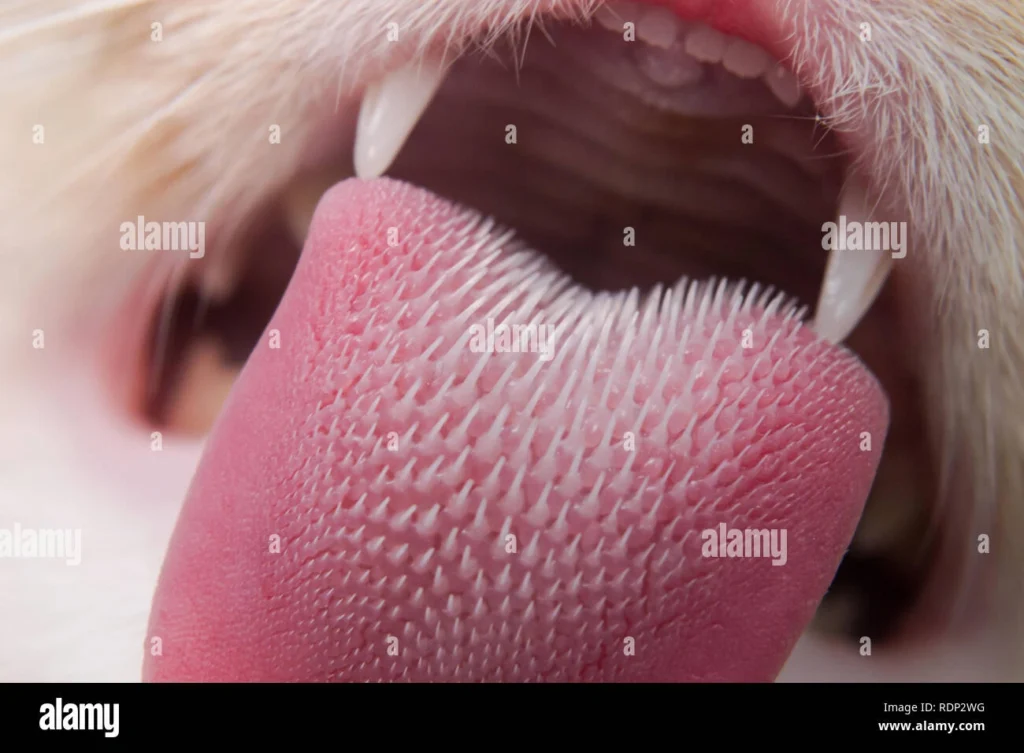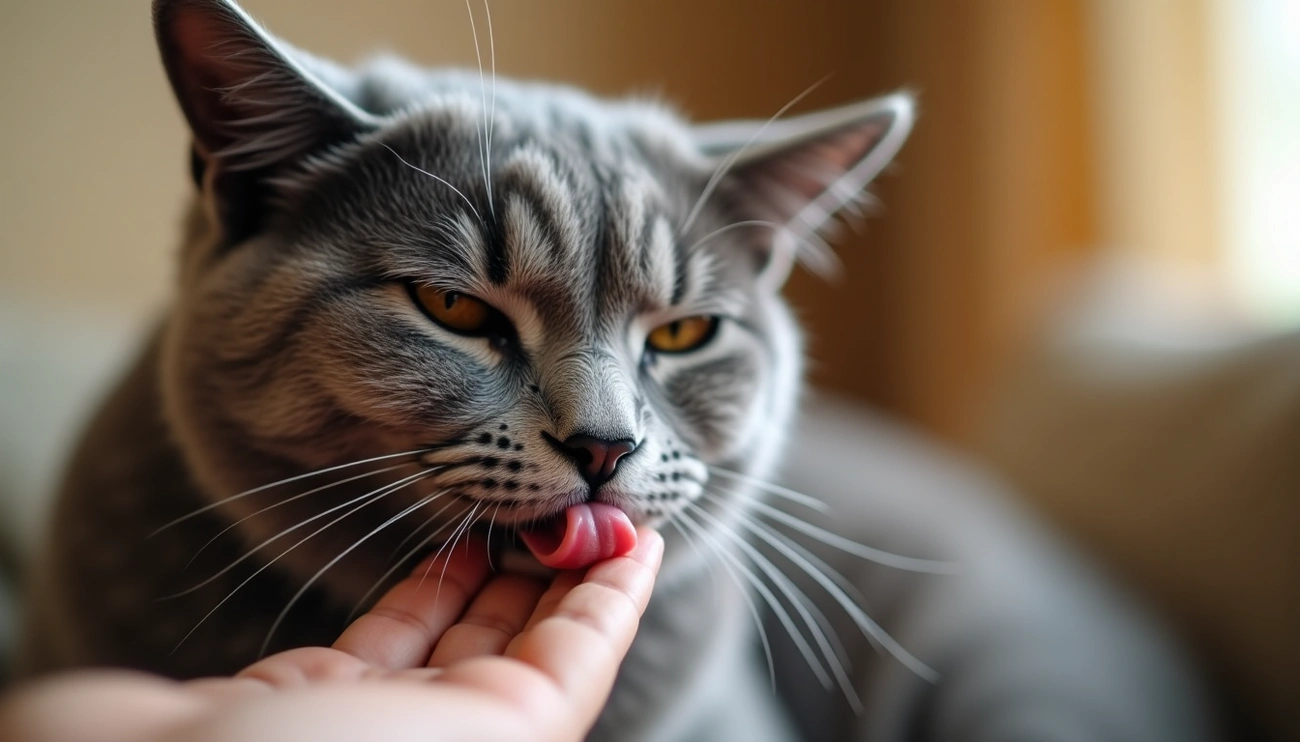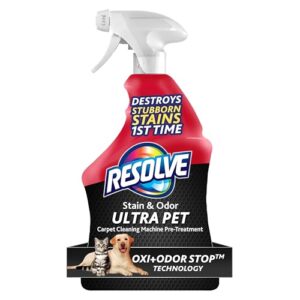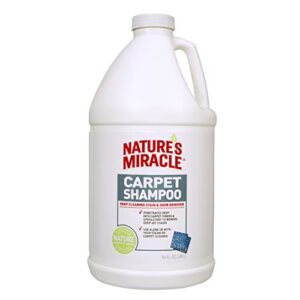Your cat’s licking habit during cuddle time might make you wonder — why does my cat lick me? Many cat owners share this curiosity, myself included. Cats spend around 8% of their waking hours grooming (and about 50% napping), so it’s only natural for them to extend this behaviour to their human family members.
A cat’s licking can mean several things. Most often, it shows their affection and serves as a bonding gesture. Your furry friend might also mark you as their territory or try to grab your attention. The behaviour usually isn’t concerning, but excessive or sudden licking might signal stress, anxiety, or health problems that need a vet’s attention. My experience as a veterinarian shows that a cat’s licking patterns often reveal important signs about their emotional and physical health.
In this piece, we’ll explore the reasons behind your cat’s licking behaviour. You’ll learn if it’s safe to let them continue and ways to redirect this habit if it starts bothering you.
Why Does My Cat Lick Me?
Your cat’s licking habit during cuddle time might make you wonder — why does my cat lick me? Many cat owners share this curiosity, myself included. Cats spend around 8% of their waking hours grooming (and about 50% napping), so it’s only natural for them to extend this behaviour to their human family members.
Why do cats lick you?
Cats are fascinating creatures that communicate in complex ways. That rough little tongue on your skin actually tells you a lot about your relationship with your feline friend.
Affection and bonding
Your cat’s gentle lick often shows pure affection. Kittens feel their mother’s tongue as both a cleaning tool and an expression of love from birth—this connection between licking and nurturing stays with them for life.
Your cat licks you as part of what experts call “affiliative behavior” – friendly, selfless actions that build social bonds. This behaviour matches how cats interact with other felines through “allogrooming,” where cats groom each other to strengthen their relationship.
Your furry friend sees you as part of their cat family. Those sandpaper kisses mean you’re special to them. The answer to “what does it mean when a cat licks you” is simple – they’re showing love in their most natural way.
Grooming behaviour from kittenhood
Cats pick up grooming habits very early. Kittens start learning to groom themselves at just two weeks old, and by weaning time, they can bathe themselves completely. They know this not just by instinct but by watching and copying their mother.
Adult cats spend much of their day keeping clean. Most cats use up to 50% of their awake time on some type of grooming. This makes cleanliness a big part of their daily life.
All the same, cats often extend this grooming to humans they trust. Your cat grooming your hair or licking your arm during petting shows they’re treating you like another cat – a deep sign of trust and love. They might even think they’re helping you reach those tricky spots, just like they’d help another cat.
Marking you as part of their group
Your cat’s licking has another key purpose – it marks you as part of their group. Cats are territorial and mainly communicate through scent. Each lick leaves its unique scent signature on your skin.
Wild cats use this scent-marking through grooming to show group identity and mark territory. Your cat licks you to say, “This human belongs to me”. Biologists call this a “group scent,” which tells other cats you’re part of their social circle.
Other cats get a clear message from this licking: “Stay away, this human is mine”. Your cat builds a stronger bond with you while warning off other cats through this marking.
So if one cat in your multi-cat home licks you more than others, they might be competing for attention or showing their claim on you. This isn’t just being possessive – they want to keep their special connection with you when other cats are around.
Your cat’s licking combines affection, instinct, and territorial marking – all showing how deep your bond with your feline friend really is.
8 common reasons your cat licks you
“”In less common cases, licking the owner could be a sign of stress,” says Coppola.” — Dr. Mikel Delgado, PhD, Certified Applied Animal Behaviorist, University of California, Davis
The sort of thing I love is breaking down why cats lick their owners. A better understanding of their motivations will help you decode your feline friend’s messages.
1. Showing affection
Cats express love through licking. This behaviour starts in kittenhood when mother cats lick their babies to show care. Your grown cat transfers this natural bonding expression to you. Veterinarians call this “affiliative behaviour” – friendly actions that build social bonds. Your cat says “I care about you” in the most natural way they know when they lick you.
2. Seeking attention
Your cat might start licking you and then lead you to their food bowl. These clever creatures quickly learn that licking gets a response. Many cats receive rewards for licking when their owners talk to them, pet them, or give them attention. Your smart companion soon realizes a few licks on your hand works perfectly to get your attention for food, play, or cuddles.
3. Marking territory
Territorial by nature, cats communicate through scent. Your cat marks you as “theirs” by leaving their unique scent signature on your skin through licking. Biologists call this a “group scent,” which tells other cats you belong to their social circle. Other felines get the message loud and clear: “this human belongs to me”.
4. Grooming instinct
Cats dedicate between 30-50% of their waking hours to grooming. They share this thorough cleaning ritual with those they trust. Scientists call this social grooming “allogrooming,” which strengthens bonds between cats in the same group. Your cat might not realize you don’t need their help to “get clean,” but they think they’re doing you a favor.
5. You taste interesting
A simple explanation might be that you taste good to your cat! Cats find the salts and oils in human skin appealing. Sweat on your skin after exercise or on hot days might attract your cat’s attention. Any lotions, cosmetics, or food traces on your skin could smell interesting enough for your cat to take a taste.
6. Stress or anxiety relief
Licking releases endorphins that calm cats down. Your cat might lick you as a self-soothing method when feeling anxious or stressed. This behaviour helps ease stress immediately. Anxiety might be the cause if you notice more licking during changes like moving homes or meeting new pets.
7. Early weaning behaviour
Adult cats often develop specific comfort-seeking behaviours if separated from their mothers too soon. Research shows that early weaning (before 8 weeks) leads to behavioural issues, including excessive licking. These cats often lick while kneading and purring to recreate their comforting nursing memories from kittenhood. This helps them feel secure during anxious or uncertain moments.
8. Medical discomfort or pain
Excessive licking sometimes points to health issues. Cats might lick you or objects around them to cope with nausea, pain, or discomfort. Veterinary studies show that cats focus on licking their painful areas but may also lick you. Your cat needs a veterinary check-up to rule out medical causes if their licking pattern changes suddenly or seems compulsive.
Is it safe to let your cat lick you?
My close bond with feline patients often leads their owners to ask me a common question: “Is it safe when your cat licks you?”
Risks of bacteria in cat saliva
Cat licking shows affection, but their saliva contains bacteria that might cause health issues. Cats have over 700 species of bacteria in their mouths. Bartonella henselae (causing Cat Scratch Fever), Pasteurella multocida, and Capnocytophaga raise the most concerns. The good news is that most people who have contact with a dog or cat do not become sick from these bacteria.
When licking should be avoided
Some situations make cat licking riskier than others. You should never let your cat lick open wounds because bacteria can cause local or systemic infections. Keep cats from licking your face, especially around your nose and mouth. Your facial mucous membranes make it easier for bacteria to enter your body.
The products on your skin need attention too. Cats can get sick from ingesting lotions, cosmetics, or medications while licking your skin[183]. Let your cat lick only your hands or areas without chemicals to stay safe.
Precautions for immunocompromised individuals
People with weak immune systems need extra alertness. The high-risk group includes those with:
- Cancer, especially during chemotherapy[172]
- HIV/AIDS
- Diabetes
- Alcohol use disorders[172]
- Organ transplants
- Missing or non-functional spleens[172]
My veterinary practice experience has taught me to give specific safety advice to immunocompromised cat owners. They should wear gloves to clean litter boxes, wash their hands after pet contact, and keep cats indoors. This reduces their exposure to animals carrying diseases.
The emotional benefits of having cats in our lives are invaluable. Most people can safely enjoy their cat’s affection by following simple hygiene rules, like washing the licked area quickly. These steps help create a healthy relationship with your feline friend.
Why does it feel rough when cats lick?

Image Source: Alamy
That rough, sandpaper feeling from your cat’s tongue isn’t random. Nature has created this remarkable design that plays several vital roles in your cat’s daily life.
Understanding the texture of a cat’s tongue
Your cat’s tongue feels rough because hundreds of tiny, backwards-facing spines called papillae cover its surface. These specialised structures contain keratin—the same protein found in your fingernails and your cat’s claws. Each papilla curves and points toward the back of your cat’s mouth. This creates the hook-like sensation you feel against your skin.
The papillae can move freely. Scientists using high-speed video have found that they can rotate at their bases when they hit tangles or knots. This flexibility lets even short spines reach deep into fur.
Research shows each papilla has a U-shaped cavity at its tip, which works like a tiny scoop. This hollow structure is vital to your cat’s grooming efficiency.
How papillae help with grooming
These spiny papillae turn your cat’s tongue into a powerful grooming tool. Cats spend 30% to 50% of their waking hours grooming. This shows how much they value staying clean.
Each lick works like a built-in comb. The hook-like papillae lift dust, loose hair, dry skin, and debris from the coat. Cats can clean themselves down to the skin with just light pressure. They reach not just the outer fur but the dense undercoat too.
Papillae do more than just clean:
- They spread natural oils across the fur to keep it healthy and shiny
- Their hollow cavities hold saliva that cools as it evaporates
- They help scrape small bits of meat from bones when eating prey
This clever design explains why your cat’s tongue feels rough yet handles so many important tasks in their daily care.
How to stop your cat from licking you
Your cat’s licking usually shows affection, but it can sometimes become excessive or uncomfortable. You can modify this behaviour gently without damaging your bond.
Redirect with toys or treats
When your cat starts licking you too much, gently move their attention to something equally engaging. Food puzzles, interactive toys, or a quick play session with a feather teaser can distract them effectively. At first, keep favourite toys nearby for quick redirection. Your cat will learn that toys—not your skin—are appropriate targets for their energy.
Use positive reinforcement
Your cat will respond well to rewards for appropriate behaviour. Note that timing matters significantly. When your cat interacts with you without licking, reward this behaviour immediately with praise, petting, or treats. Studies show that 50% of cats actually prefer human social interaction over food as rewards, so finding what motivates your cat is significant.
Avoid punishment
Scolding, water squirting, or bitter-tasting sprays won’t stop licking effectively. Punishment can damage your cat’s trust and potentially increase anxiety—often making licking worse. Simply stand up and walk away when licking begins. This sends a clear message without negativity.
When to consult a vet
Your veterinarian should examine your cat if licking persists despite consistent redirection, especially if the behaviour seems compulsive or started suddenly. Excessive licking might indicate root medical issues or anxiety that needs professional help.
Conclusion
Your cat’s licking behaviour reveals a lot about feline nature and helps build a stronger bond with your furry companion. This piece explores how that sandpaper-textured gesture represents deep affection, as with mother cats caring for their kittens. Your cat sees you as family and extends their natural grooming behaviours your way.
Cats don’t just lick to show love – they have many more reasons. The context helps you figure out if they want attention, mark their territory, calm themselves, or signal distress. Their rough little tongues, equipped with hundreds of specialised papillae, serve multiple roles from grooming and cooling to eating efficiently.
Cat licking usually signals a healthy relationship, though excessive licking might need gentle redirection. You can teach your cat appropriate boundaries through positive reinforcement without hurting your special bond. Changes in licking patterns should prompt a vet visit because they might reveal health problems.
Most cat owners safely enjoy these displays of feline affection with simple hygiene practices afterwards. People with weakened immune systems need extra care, but these sandpaper kisses represent something special to almost everyone – a unique bond of trust and companionship with their feline friend.
Your cat’s rough tongue on your skin means more than just an odd habit. They communicate their feelings through licks instead of words. This instinctive behaviour, deeply rooted in their natural history, shows how completely they’ve accepted you into their world.
Key Takeaways
Understanding your cat’s licking behaviour reveals important insights about their emotional state, health, and the strength of your bond together.
• Cat licking primarily signals affection and bonding – they’re treating you as family through natural grooming instincts learned from kittenhood.
• Excessive or sudden licking changes may indicate stress, anxiety, or medical issues requiring veterinary attention for proper diagnosis.
• While generally safe, cat saliva contains bacteria that can pose risks to immunocompromised individuals or through open wounds.
• The rough texture comes from hundreds of backwards-facing papillae that serve as specialised grooming tools for cleaning and temperature regulation.
• Redirect unwanted licking using positive reinforcement with toys and treats rather than punishment to maintain your relationship.
Remember that your cat’s sandpaper kisses represent one of the most authentic expressions of feline love – a behaviour that connects them to their earliest memories of maternal care and extends that same nurturing instinct to you as their chosen family member. Read more about the cat goes to the HOME
FAQs About Why Does My Cat Lick Me
Q. Is it safe to let my cat lick me?
While cat licking is generally harmless, it’s best to avoid letting them lick your face or open wounds. Cat saliva contains bacteria that could potentially cause infections, especially in people with weakened immune systems. Washing the licked area afterwards is a good precaution.
Q. Why does my cat’s tongue feel so rough when they lick me?
Your cat’s tongue feels rough because it’s covered in tiny, backwards-facing spines called papillae. These keratin structures help cats groom themselves effectively, removing dirt and loose fur. The papillae also assist in rasping meat from bones and distributing natural oils throughout their coat.
Q. How can I stop my cat from licking me excessively?
To discourage excessive licking, gently redirect your cat’s attention to toys or treats when they start. Use positive reinforcement to reward non-licking behaviour. Avoid punishment, as it can damage your relationship. If the behaviour persists, consult your veterinarian to rule out any underlying health issues.
Q. What does it mean when my cat licks me?
Cat licking is often a sign of affection and bonding. It’s a behaviour learned from kittenhood when mother cats groom their kittens. Your cat may also be marking you as part of their group, seeking attention, or self-soothing. In some cases, excessive licking could indicate stress or anxiety.
Q.What Does It Mean When My Cat Licks Me?
cat’s licking can mean several things. Most often, it’s a sign of affection and a bonding gesture. Your furry friend might also be marking you as part of their territory or simply trying to get your attention. Generally, this behaviour isn’t a cause for concern. However, excessive or sudden licking can signal stress, anxiety, or even an underlying health issue that may require a vet’s attention.
Q. How often should cats groom themselves?
Cats typically spend between 15-50% of their waking hours grooming themselves. This is normal behaviour for cats and helps them maintain their coat, regulate body temperature, and relax. However, if you notice sudden changes in grooming habits or excessive grooming, it’s best to consult with your veterinarian.





